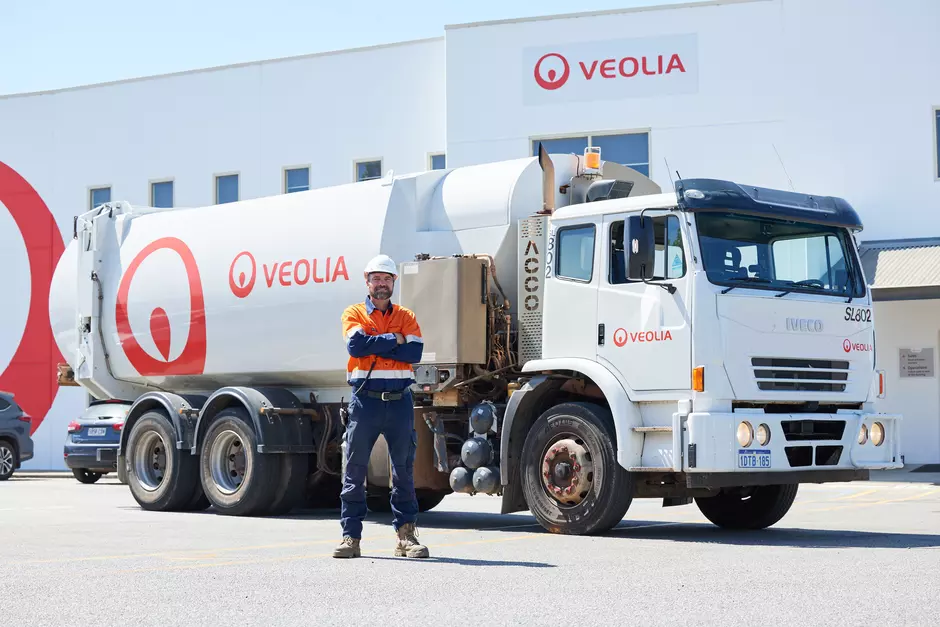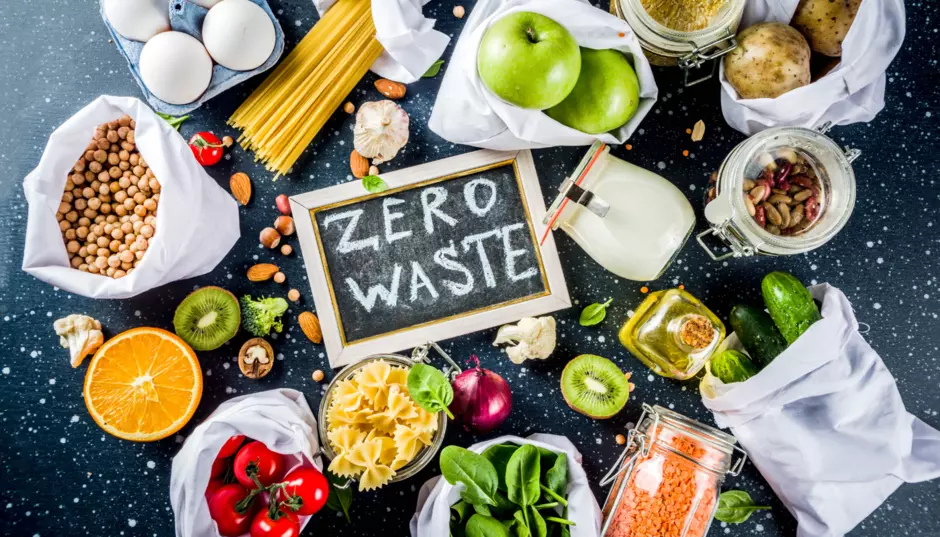Many Australians are struggling to work out which bin to put their household rubbish in, on average, getting stumped more than 40% of the time, according to a new survey of mainland states commissioned by Veolia.
What were the key findings?
Victorians know best what goes in each bin while NSW and Queensland come last.
South Australians try to recycle the most. Every state is rubbish at disposing of coffee cups, vapes and biodegradable plastic bags.
Only 22% know where to dispose of vapes and surprisingly for a pet loving nation 80% don’t know what to do with dead animals.
Almost 100% of Australians demand clear signs on bins, products and packaging that tell them exactly what goes in each bin.
One in five of us want a FOGO bin, but we might want to learn better what goes in them, with almost half of the people surveyed in one state trying to put pet droppings in FOGO.
What else did we learn?
Many Australians are struggling to work out which bin to put their household rubbish in, on average, getting stumped more than 40% of the time, according to a new survey of mainland states commissioned by Veolia, with NSW and Queensland getting it wrong the most.
Shocking results by waste category across Australia found that less than half knew how to dispose of old hand tools, biodegradable plastic bags, and ― absolutely last ― dead animals.
The survey also revealed the state most likely to put pet droppings in a FOGO bin, that 77% of us still don’t know how to dispose of compostable coffee cups and 78% of us have no idea what to do with empty vapes and e-cigarettes.
The nationally representative YouGov survey of 1,172 Australians across the five mainland states conducted in April, found on average Victoria leads the way when it comes to knowing which bin their rubbish should go into.
The survey also found Queensland residents were most likely to put more rubbish in the general waste bin compared to any other state, while South Australians put the least amount in the general waste bin but were the most confused about what is recyclable.
Veolia ANZ CEO Dr Richard Kirkman says the results offer a window into how we deal with household waste and where we need to improve recycling rates.
“There are clear household recycling success stories right across the country, like plastic bottles and paper, where most of us know exactly what to do. However, there are also some concerning statistics around disposal of vapes, and items labelled as ‘compostable or biodegradable’ that really belong in general waste bins,” Dr Kirkman said.
“There is a big difference between what is recyclable and what can be recycled ― especially at industrial scale. Not everything that is recyclable is recycled."
Australians get it right nearly every time when it comes to correctly disposing of plastic drink bottles (92%), paper (87%) and garden waste (82%).
A vast majority (86%) also know where to dispose of old clothing ― special drop-off points or the general waste bin ― but as so many charities report, it is distinguishing between what can be resold and what has reached the end of its life that remains troublesome. Even as far back as 2019, 10,000 tonnes of unusable clothes were being sent by charities to landfill every year.
There were some surprising and concerning results about common items that are being disposed of in the wrong bin. Almost 3 out of 4 people in the mainland states (72%) think compostable single-use coffee cups can be recycled and more than half think bamboo and wood cutlery (63%) and biodegradable plastic bags (58%) are recyclable. All three should go in the general waste bin and then to landfill.
“Despite the name, compostable coffee cups generally can only break down under very specific controlled conditions, which means they cannot be recycled at scale. The same is true with biodegradable bags. Bamboo and wood cutlery require specialised services to be recycled and even then whether or not they can be recycled depends on how they are made,” said Dr Kirkman.
“The most shocking result is how we dispose of dead animals, with 38% of people putting them in the wrong bin and even more, 42%, not knowing what to do at all."
“Some people might have thought we were being darkly humorous when we added dead animals as waste items, but it’s not as uncommon as you think. We’ve had a dead cow cut in half, a donkey’s head and dead pets turn up in green bins. These all pose contamination risks,” said Dr Kirkman.
“However, the greatest concern for the entire waste industry are vapes and batteries in our bins that go on to cause fires in our trucks, waste facilities and in landfill. These directly put the lives of our workers and the community at risk.”
Vapes and batteries remain a big problem
The survey commissioned explains why vapes / e-cigarettes continue to be such an issue. It found 39% of respondents didn’t know how to dispose of vapes and another 39% thought they went in kerbside bins.
The survey also revealed that 1 in 4 people had either littered vapes themselves or seen vapes dropped as litter and 1 in 5 had seen old vapes placed in street and kerbside bins by others or done it themselves.
A solution may be to make the specific disposal of vapes and e-cigarettes more convenient and clearly defined. The majority of those surveyed agreed they would use a kerbside service that picks up vapes / e-cigarettes (59%) or supermarket drop-off points (67%) if they were available.
Batteries are disposed of better than vapes but still 35% of those surveyed thought batteries belonged in kerbside bins and 6% didn’t know how to dispose of them at all.
“Based on the survey’s figures, around 40% of people in mainland states are likely disposing of batteries incorrectly and 79% are likely disposing of vapes incorrectly. That tells us the issue of vapes and batteries ending up in our bins and roadsides is not going to go away without significant public education around their proper disposal,” Dr Kirkman said.
“Governments at all levels and businesses need to come together to find ways to invest resources in education and to find effective and safe collection solutions that will remove them entirely from kerbside bins. This is a public safety imperative.”
The future of FOGO
Every state and territory in Australia is moving towards Food Organics, Garden Organics (FOGO) collections with evidence showing that a three-bin system that includes FOGO can lift recycling rates to 70% (Recovery rates for kerbside bin configurations - Sustainability Victoria, 2017).
Across the mainland states 52% of survey participants had a FOGO bin. This was highest in Victoria (62%) and lowest in Queensland (34%).
That left us with two important questions, how well did those with a FOGO bin use them and how many of us want a FOGO bin added to their collection?
While more than half of those surveyed were happy with the number of bins they already had (53% - see Table 5) FOGO was the most in demand bin, with 20% of those surveyed wanting it added to their collection. On a state-by state basis Queensland topped that list at 29%.
To determine how well Australians understand what can and can’t go into the bin, we listed 9 items and asked which of these could go in a FOGO bin. Those surveyed were most confident that vegetable scraps could go in the bin (87%) but less sure about meat (50%) and pet food (44%).
However, when it came to putting the wrong thing in a FOGO bin, the most common mistake was compostable coffee cups (45%), paper towels (37%) and surprisingly pet droppings (29%).
Some of these contaminants can prevent FOGO from being used to make compost. Reducing this contamination matters because FOGO offers a truly circular pathway for waste in a sustainable economy.
Good quality FOGO waste is transformed into nutrient rich compost that can be used on agricultural land and even home gardens. So, we asked, how confident were those surveyed in using this final compost product in their own garden?
Across the mainland states almost 1 in 3 people were confident enough to say they would use FOGO compost on their garden. The most confident were West Australians (36%) while the least confident were those in South Australia (25%).
“It was surprising to find only 1 in 3 of those surveyed were confident to use compost made from FOGO on their gardens as the process is highly regulated, goes through a range of processes to remove contamination and produces a product that is so good it can even be used on organic farms,” Dr Kirkman said.
“Compost made from FOGO has no added chemicals and has a high nutrient value. It is probably second only in quality to the compost made by avid gardeners in their own backyard. Best of all, it makes for a truly circular economy when it comes to food waste.”
Finding solutions
The survey wanted to go further than just finding out how well we understand what goes in our bins, it also examined what kind of changes would improve that understanding and reduce contamination and hazards in the household waste stream.
We started by setting a baseline, asking if people were confused by which waste went into which bin. A majority (56%) agreed that at times this was the case, with Queenslanders being the most confused (64%) and South Australians saying they were the least confused (52%).
To ease the confusion, nearly all of those surveyed agreed that instructions on which waste goes into which bin should be clearly displayed on the bins themselves (94%).
An even larger number (95%) agreed that the products we buy needed to clearly indicate the method of disposal for the packaging on the packaging and for the product on the product itself.
“The waste industry has been very vocal about how every product and piece of packaging should be designed and manufactured with end-of-life disposal and recycling in mind,” said Dr Kirkman.
“This survey suggests the public agrees. The fact that Australians want clear instructions on products, packaging and bins tells us that they want to do the right thing with their waste so they can plan an active role in creating a sustainable circular economy.”
For All Media Enquiries Please Click the Link Below
Valeria Cheglov, Head of Communications and Public Policy





